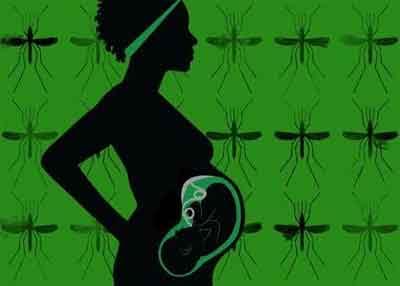- Home
- Editorial
- News
- Practice Guidelines
- Anesthesiology Guidelines
- Cancer Guidelines
- Cardiac Sciences Guidelines
- Critical Care Guidelines
- Dentistry Guidelines
- Dermatology Guidelines
- Diabetes and Endo Guidelines
- Diagnostics Guidelines
- ENT Guidelines
- Featured Practice Guidelines
- Gastroenterology Guidelines
- Geriatrics Guidelines
- Medicine Guidelines
- Nephrology Guidelines
- Neurosciences Guidelines
- Obs and Gynae Guidelines
- Ophthalmology Guidelines
- Orthopaedics Guidelines
- Paediatrics Guidelines
- Psychiatry Guidelines
- Pulmonology Guidelines
- Radiology Guidelines
- Surgery Guidelines
- Urology Guidelines
Maternal Sepsis not an indication for immediate Delivery in pregnancy: SMFM Guidance

Sepsis is not an indication for Immediate Delivery in during pregnancy, according to new Guidance by The Society for Maternal-Fetal Medicine (SMFM). However broad-spectrum antibiotics should be administered as soon as possible in maternal Sepsis during pregnancy and Puerperium.
Sepsis is not a specific illness; rather it is a syndrome characterized by life-threatening organ dysfunction. If sepsis develops during pregnancy, while or after giving birth, or after an abortion, it is called maternal sepsis. Despite being highly preventable, maternal sepsis continues to be a major cause of death and morbidity for pregnant or recently pregnant women.
Sepsis in pregnancy is associated with an increased risk of preterm birth, prolonged recovery, stillbirth and maternal death. In 63% of maternal sepsis deaths, independent reviewers found substandard care, most often a delay in recognition or management of sepsis, and most often on the obstetric unit of the hospital.
The Society for Maternal-Fetal Medicine (SMFM) has released new recommendations related to the diagnosis and treatment of sepsis which aims at reducing maternal morbidity and mortality. The "SMFM Consult Series 47: Sepsis During Pregnancy and the Puerperium," is endorsed by the American College of Obstetricians and Gynecologists and published in the American Journal of Obstetrics and Gynecology.
The Other Key Recommendations are :
- We recommend that sepsis and septic shock be considered medical emergencies and that treatment and resuscitation begin immediately (GRADE1B);
- We recommend that providers consider the diagnosis of sepsis in pregnant patients with otherwise unexplained end-organ damage in the presence of an infectious process, regardless of the presence of fever (GRADE 1B);
- We recommend that empiric broad-spectrum antibiotics be administered as soon as possible, ideally within 1 hour, in any pregnant woman in whom sepsis is suspected (GRADE 1B);
- We recommend obtaining cultures (blood, urine, respiratory, and others as indicated) and serum lactate levels in pregnant or postpartum women in whom sepsis is suspected or identified, and early source control should be completed as soon as possible (GRADE 1C);
- We recommend early administration of 1e2 L of crystalloid solutions in sepsis complicated by hypotension or suspected organ hypoperfusion (GRADE 1C);
- We recommend the use of norepinephrine as the first-line vasopressor during pregnancy and the postpartum period in sepsis with persistent hypotension and/or hypoperfusion despite fluid resuscitation (GRADE 1C);
- Sepsis is not an indication for Immediate Delivery. We recommend against immediate delivery for the sole indication of sepsis and that delivery should be dictated by obstetric indications (GRADE 1B).
The new "SMFM Consult Series" and accompanying resources detail seven specific recommendations for obstetric care providers. "The treatment of sepsis during pregnancy should follow the same basic principles in the nonpregnant population," said Judette Louis, MD, an author of the publication and the president-elect of SMFM. "Our goal is to improve care and prevent future sepsis deaths or organ damage caused by sepsis."
To better diagnose and treat sepsis, SMFM has also released a new podcast called, "Sepsis," featuring Drs. Judette Louis and Tony Kendle that summarizes the new publication.
There are certain risk factors that increase the likelihood of maternal sepsis, including nulliparity, black race, public or no insurance, cesarean delivery, assisted reproductive technologies and multiple gestations. "The rate of sepsis appears to be increasing," said Dr. Louis. "Therefore, it is increasingly important to identify sepsis early and save women's lives.

Disclaimer: This site is primarily intended for healthcare professionals. Any content/information on this website does not replace the advice of medical and/or health professionals and should not be construed as medical/diagnostic advice/endorsement or prescription. Use of this site is subject to our terms of use, privacy policy, advertisement policy. © 2020 Minerva Medical Treatment Pvt Ltd